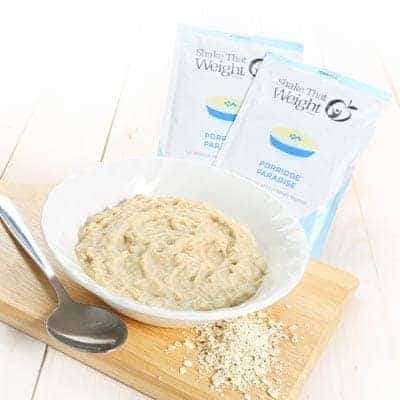Appetite Regulation
Whole grains and whole-grain derivatives have a high amount of dietary fiber. This substance helps fill you up, which prevents you from overeating. If you do not overeat, you will maintain or even lose weight. Fiber also helps keep blood-sugar levels on an even keel and reduces the risk for high cholesterol. A cup of cooked porridge contains about 4 grams of fiber. Men should try to consume at least 30 grams a day, while women should get 20 grams. Adding berries, seeds and nuts to the porridge increases its fiber content.
Energy
Carbohydrates are macronutrients needed for optimal brain function and energy through the course of the day. Porridge contains a high amount of complex carbs, which get digested at a slow pace, unlike simple carbs. This gives you lasting energy. A 1-cup serving contains just over 27 grams of carbs. Adding fruit, honey, brown sugar or milk to your porridge will boost the carb content of your meal and increase the calories. Milk also contains a moderate amount of protein.
Oxygen Transport
Iron is used for the production of myoglobin and hemoglobin, which join forces with red blood cells to carry oxygen to the muscles and all other areas of the body. Porridge has a generous amount of this mineral. One cup contains about 14 milligrams, which is more than 100 percent of the recommended intake for men and about 80 percent for women.
Muscle Recovery
Porridge has a high content of phosphorus. A 1-cup serving contains 180 milligrams, which is 25 percent of the recommended daily value. Phosphorus, which is stored in the bones, helps with energy production, filtering of waste through the kidneys and muscle recovery after intense exercise. Making porridge with milk and adding seeds and nuts will create a high-phosphorus content in your meal.
Strong Bones
Calcium is similar to phosphorus in that it helps strengthen teeth and bones. It also plays a role in hormone secretion, nerve transmission and muscle function. The daily recommended intake of calcium for men aged 19 to 70 is 1,000 milligrams. Women aged 19 to 50 should get 1,000 milligrams, but women ages 51 to 70 should get 1,200 milligrams. One cup of porridge contains about 187 milligrams. By preparing your gruel with milk, you will boost the calcium content of the meal.
Immunity Boosting
Vitamin A is a fat-soluble vitamin that the body needs for vision, cell and tissue growth and reproduction. It is also an antioxidant, which helps destroy free radicals and reduce the risk for chronic disease. A 1-cup serving of porridge supplies more than 1,450 international units of vitamin A. The recommended daily value of this vitamin is 3,000 international units for men over 19 years old and 2,300 international units for women in this same age group











